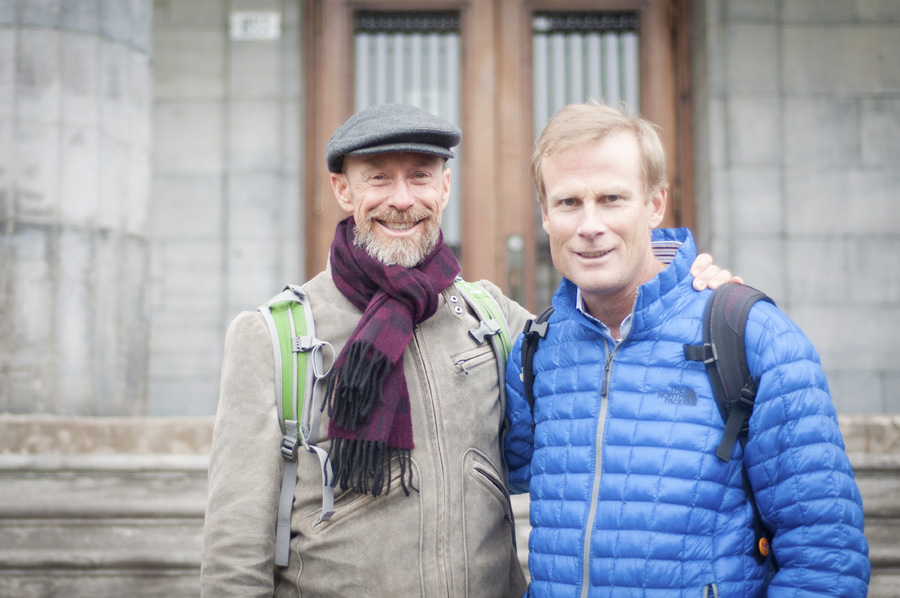Conrad Anker and Kenny Broad are two explorers who have, respectively, scaled the highest peaks and dived into the deepest oceans on the planet. On Sept. 29, the two spoke at McGill in “An Evening of Field Research and Exploration,” a free public event hosted by the National Geographic Society. Before their presentation, Anker and Broad spoke to the McGill Tribune about their explorations and why exploration continues to be relevant today.
McGill Tribune: Can you briefly describe what you do?
Conrad Anker: I’m a mountain climber. I participated in research with the National Geographic Society in 2002, when we studied the chiru, a Tibetan antelope. I’ve also helped out climatologists studying glaciers.
Kenny Broad: I’m an environmental anthropologist. I look at the ecology and policies for human-environment interactions and decision-making. I’m mainly a diver, and I like to put together groups from different scientific disciplines because sometimes, you only get one shot to go to a remote area, so you try to work as much as you can in that one shot.
MT: How did you become interested in your field of exploration?
CA: I grew up in the mountains, so it was what my parents forced me to do … and I ended up loving it! I’m just hard-wired for a high-risk, high-sensory-input type of environment.
KB: I grew up in Miami Beach where, if you go outside, you’re almost in the water. Some people have this different feeling when they get to another environment, whether it’s the mountains or [in] water … it opens up your world, and all the problems that we feel on land kind of disappear.
MT: Describe your favourite exploration.
CA: It’s probably the trip in Tibet when we studied the chiru. We ended up producing a show for the National Geographic that lessened the demand for the Shahtoosh shawls that the animals were being poached for, so it had a good outcome.
KB: My best trip is probably the most recent, when I explored some underwater caves in Florida. We have real challenges with our water resources, so to be able to bring back information and really push for better use of water in my neighbourhood is what I love. It had the best of exploration and also some kind of societal outcome.
MT: Why do you think exploration is important?
KB: The question of ‘why do you do this?’ is not one we ask ourselves. It just feels natural. I heard there’s evidence that people have an ‘exploration gene,’ a certain genetic makeup where you want to push a little further into the unknown. And whether it’s for conservation, or better management of particular resources, or human health findings for a particular drug development … those are all great outcomes, but the core of it is that selfish desire.
CA: In the bigger picture, humans are driven by exploration and discovery. The next continents to be discovered are not the physical continents, because we’ve mapped everything, but how we feed, clothe, and shelter seven billion people today, and nine billion people in twenty years; and where do we do that? Addressing these questions that have concrete outcomes—that’s where exploration and discovery [have] gone. If we don’t keep that [exploration] gene alive and don’t get people excited, then we’re not doing society a favour. Universities are incubators of knowledge and thought—that’s why being able to share our adventures at a university feels really good for Kenny and I.
MT: What advice would you give to students about their aspirations?
KB: Follow your aspirations and go for it. Nothing comes easy, and don’t worry if you fail at something. You should worry if you’re not trying your hardest but don’t worry if you fail, and just keep trying.
CA: And do it because you want to, not because there’s some reward. Find out why you want to do it and be prepared for a lot of work and sacrifice. If it’s really something you love to do, the effort you put into it will come easy. We’re so diverse as humans, that when you find what you’re good at, and you can really excel at it, then you’re doing yourself and your fellow humans a great favour.
—This interview was condensed and edited by Karen Huang.







